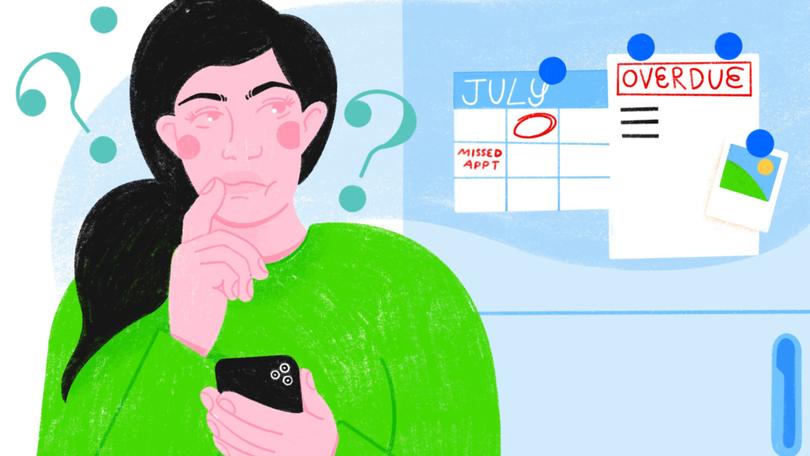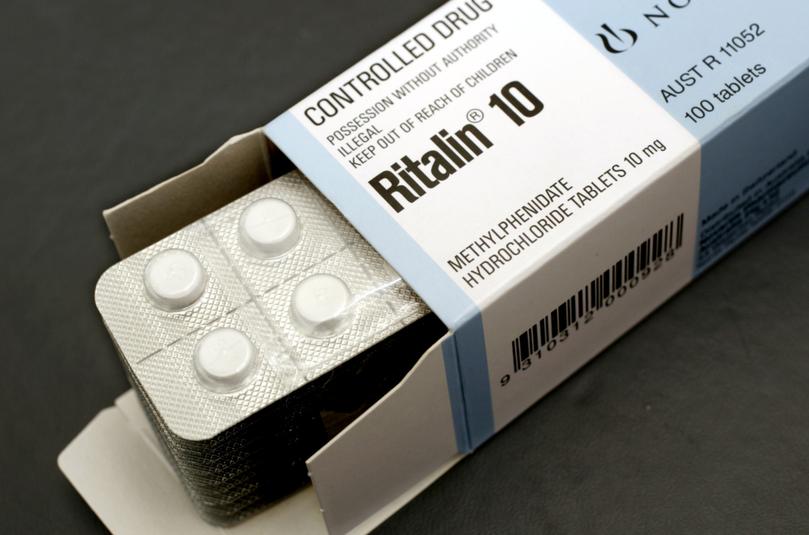It’s claimed thousands of older adults are going undiagnosed ... Could you be an older adult with ADHD?
And what does is really mean to be diagnosed later in life?

Older adults with attention deficit hyperactivity disorder are “slipping through the cracks of the healthcare system” – leaving many isolated, depressed or even misdiagnosed with dementia, experts have warned.
The condition, which causes problems with concentration, constant fidgeting and impulsive behaviour among many symptoms, is mainly associated with disruptive children.
But in what’s been described as “a health emergency” by one specialist, doctors say they fear that key signs of ADHD in older people are being missed.
Sign up to The Nightly's newsletters.
Get the first look at the digital newspaper, curated daily stories and breaking headlines delivered to your inbox.
By continuing you agree to our Terms and Privacy Policy.There has been a surge in adults being diagnosed, with a 50-fold increase in men aged 18 to 29 being treated for ADHD.
Celebrities, such as comedian Sue Perkins, 54, and singer Lily Allen, 39, have also gone public with their struggles with the condition, raising awareness.
Signs of the disorder in later life, such as constantly losing things, forgetting to pay bills on time or “zoning out” during conversations, may be put down to “old age”.
However, experts believe ADHD is a lifelong condition – and often runs in families.
The death of, or separation from, a partner may uncover symptoms in older people says ADHD expert and clinical psychologist Dr Kathleen Nadeau.
“Older adults we see with ADHD are more likely to be divorced or widowed and are often living in utter chaos,” she said.
“Suddenly they’re having to manage life all by themselves – all that structure of family and work life or spousal support is gone. The ADHD, undiagnosed for decades, can worsen, making people much more prone to social isolation and unhealthy lifestyles.”
Those going undiagnosed are being denied medical treatment and support, Dr Nadeau adds.
Retired civil servant Nick Tooley, 66, said his ADHD diagnosis during the Covid-19 pandemic “answered so many questions”.
“I always thought I was just a lazy person. But it explained an awful lot – why I struggled with school exams, and work seemed harder than it should be,” he explained.
Tasks like paying bills or booking a work trip felt like huge undertakings for the father-of-two.
“Getting the diagnosis was amazing. But it made me think that if I’d known and done something about it in the past, then life could have been so much easier,” he said.

Podiatrist Helen Swindley, 66, was diagnosed with the condition after her daughters left home.
“As a mother, you do everything you have to do. But some days when they were both at school and I had a day to myself, I’d just go home and get back into bed,” she said.
“I needed that time for myself, but then I would label it as being lazy. Now I understand why I felt so overwhelmed.”
For Valerie Anckorn, 85, it was just learning about ADHD and recognising the traits in herself – even without a diagnosis – that gave her peace of mind.
“I never thought I had a problem, but I saw something on Facebook and thought it looked familiar, and then I thought, “Blimey – that’s me, that’s what I’m like!” It suddenly made sense of so many memories I have of being a little girl during the war. At school I just couldn’t listen to people so I would drift off, and that’s what my life’s been like – drifting in and out of things.”
Research has shown 80 per cent of those with ADHD will have at least one other psychiatric disorder in their lifetime – commonly depression or anxiety.
A pivotal 2018 study by ADHD expert Dr Russell Barkley revealed a shocking new finding: the condition can reduce life expectancy by up to 13 years.
Following a large group of ADHD patients in Milwaukee, Wisconsin, from childhood through adulthood, US researchers found that behaviours linked to the condition such as disorganisation, impulsiveness and risk-taking led to a shorter lifespan.
By treating the condition, Dr Barkley says, ADHD patients can live healthier, happier lives.
People diagnosed with ADHD are most commonly prescribed stimulants such as amphetamine- dextroamphetamine and methylphenidate – sold under brand names Adderall and Ritalin – which work by increasing activity in areas of the brain that control attention and behaviour.
ADHD can also be treated with non-stimulant medications that don’t tend to cause agitation or sleeplessness but can be less effective at improving concentration.
Psychologists often recommend psychotherapy and support groups for older adults who may lack support and community ties.
These are most effective in tandem, explains consultant psychiatrist and Royal College of Psychiatrists Fellow Professor Marios Adamou.
“There are two things you can do to help someone who has just been diagnosed,” Prof Adamou said.
“One is to support them emotionally, which is something that all people with ADHD could benefit from, whether it be counselling, coaching or friendship.
“The other is intervention – which involves actually changing their symptoms and behaviour, primarily by prescribing stimulant medication.”
Both specialists described a reluctance among psychologists to prescribe such medication to older adults – likely caused by a lack of research into the effects of the drugs in the over-65 age group.
Stimulants can cause side-effects including a fast heart rate, high blood pressure and appetite loss.
They can also interfere with other medications and risk exacerbating existing health conditions.
This can be of particular concern when treating older patients with several medical problems.
“As these medications aren’t typically prescribed for older adults, there are no clear guidelines on the doses to offer, nor how they interact with other tablets that patients might be taking for health conditions that accompany old age,” Prof Adamou said.
As a result, he adds, psychologists often shy away from prescribing them for newly-diagnosed elderly patients.
But, according to Dr Nadeau, most of the fears over the dangers are unfounded.
“Older adults respond very well to the same stimulants children are prescribed,” she explains.
“Yet most doctors are not trained to do it and aren’t comfortable doing it. It’s a real health emergency that such a common disorder is not being treated among older adults.”
In some cases, they are misdiagnosed – told by doctors that their life-long memory issues and distractedness could be dementia.
“ADHD is often misdiagnosed as age-related cognitive decline in older adults because we’ve done almost no research on the age group,” said Dr Nadeau.
“Doctors don’t routinely screen for ADHD when older people come in complaining of memory problems.”
While researching her book Still Distracted After All These Years: Help And Support for Older Adults With ADHD, Dr Nadeau spoke to elderly people who were treated for dementia for years before getting a proper diagnosis.
Once they’d been correctly diagnosed and given the right treatment, their “dementia” resolved.
The sudden surge of ADHD assessment referrals has made many doctors wary of people self-diagnosing.
Psychotherapist Philippa Perry caused a furore by warning it was now “fashionable” to have ADHD – and she believed the rocketing number of people seeking diagnoses was due to “social contagion”.
A 2023 BBC documentary also found a number of private clinics were diagnosing patients and offering medication based on unreliable online assessments.
Professor Adamou says only half of those who come for assessment ultimately receive an ADHD diagnosis.
“There are essentially two groups of adults filling up the waiting lists: those who have had ADHD their whole lives and only now become aware of it; and those who identify as neurodiverse but aren’t.
“Both parties are damaged by this. Those who don’t have ADHD are either misdiagnosed or have wasted time waiting in a queue, and those who do are being prevented from having treatment.”
But for those who do need treatment for a condition they’ve struggled with all their lives, experts say age should be no object.
For solicitor Duncan Strachan, 70, finding out he had ADHD two years ago, following his adult son’s diagnosis, was both a cause for celebration – “a great excuse for being untidy”, he joked – and a source of sadness.
“It makes me think that if I’d recognised the traits in my son when he was at school I could have made his life so much easier,” he says.
“I thought he and I were both normal because we thought and acted the same way.
“Now I don’t want anyone else to have to go through the difficulties we went through.”
